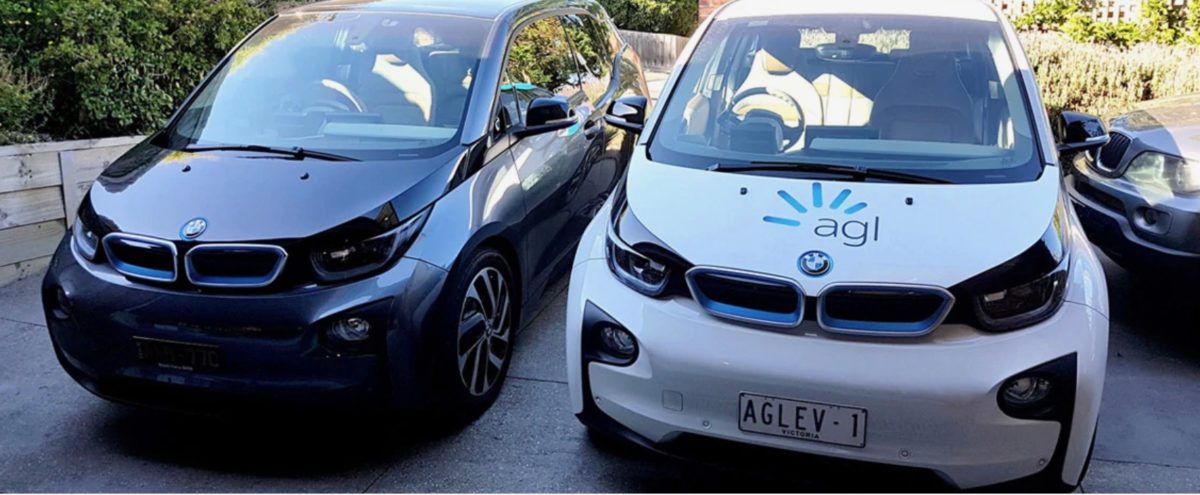AGL, Australia’s largest emitter, has announced its joining of the EV100, a worldwide initiative driven by The Climate Group to bring together companies toward the goal of making electric vehicles (EVs) the transport sector’s new norm by 2030.
AGL is the first Australian company to join EV100, a commitment to transition its fleet of 400 corporate vehicles to 100% electric by 2030. Currently, only 10% of AGL’s fleet is electric.
The decision to join EV100 comes as part of AGL’s recently upgraded Climate Statement, in which the energy giant set a target to achieve net-zero emissions by 2050, and follows the unveiling of plans for a massive deployment of 1.2 GW of utility-scale batteries across multiple locations. One such location would be the Hunter Valley site of AGL’s Liddell coal-fired power plant which is set to retire in April 2023. AGL is planning to utilise the site with a 500 MW energy storage system.
“EVs present a simple and effective solution as part of a cleaner energy future,” said AGL Chief Operating Officer, Markus Brokhof, “with the transportation sector currently responsible for up to 19% of Australia’s greenhouse gas emissions.”
“EV technology and manufacturing are at a point where the vehicles themselves are no longer just for early adopters,” continued Brokhof, “and we will begin to see prices fall into line with that of petrol/diesel equivalent vehicles.”
AGL says that its decision to join EV100 is part of its “commitment to embrace innovation and technology and to ensure we are not only achieving the best solutions for the environment but also for our employees, customers and shareholders.”
Of course, as Brokhof said above, EVs are no longer just for early adopters, and AGL is certainly not an early adopter, just a bandwagon entrant once the price was right. This type of commitment, the type of commitment made solely in AGL’s interests and publicised as the type of thing a forward-thinking company should be doing. But, of course, a company would have to be an early adopter of EV to be forward-thinking, which AGL concedes it isn’t, merely opportunistic.
The same could be said of much of AGL’s updated Climate Statement, which seeks to offload the emitter’s responsibility to its customers and reward its executives for investing in the renewable energy they themselves admit is the future. And it is for this reason that shareholders have called on AGL to accelerate the closure of its coal-fired power stations.
Policy Poor
Despite the skyrocketing stocks of EV companies, particularly Tesla of course, and The Financial Times reporting on Australia’s growing challenge to global competition for EV and EV charging related materials such as graphite, the Federal Government is yet to set firm EV policy.
Research by the Climate Council and other agencies has shown that Australians support the reduction of taxes on electric vehicles and formation of policies to incentivise EV uptake.
Transportation accounts for almost 20% of Australia’s greenhouse gas emissions, making it the country’s second-highest (after the electricity sector) source of emissions contributing to global warming.
EV100
EV100 currently boasts of more than 85 member companies around the world, from Air New Zealand and Bank of America, to Ikea and Goldman Sachs, which are combining to transition more than 4.7 million vehicles by 2030.
The Climate Group’s Corporate Partnerships Director, Mike Peirce, said that AGL’s “commitment demonstrates the continued growth of the campaign into new markets, helping to grow demand and accelerate the EV transition around the world. We call on other Australian companies to follow AGL’s leadership and commit to EV100.”
This content is protected by copyright and may not be reused. If you want to cooperate with us and would like to reuse some of our content, please contact: editors@pv-magazine.com.









By submitting this form you agree to pv magazine using your data for the purposes of publishing your comment.
Your personal data will only be disclosed or otherwise transmitted to third parties for the purposes of spam filtering or if this is necessary for technical maintenance of the website. Any other transfer to third parties will not take place unless this is justified on the basis of applicable data protection regulations or if pv magazine is legally obliged to do so.
You may revoke this consent at any time with effect for the future, in which case your personal data will be deleted immediately. Otherwise, your data will be deleted if pv magazine has processed your request or the purpose of data storage is fulfilled.
Further information on data privacy can be found in our Data Protection Policy.